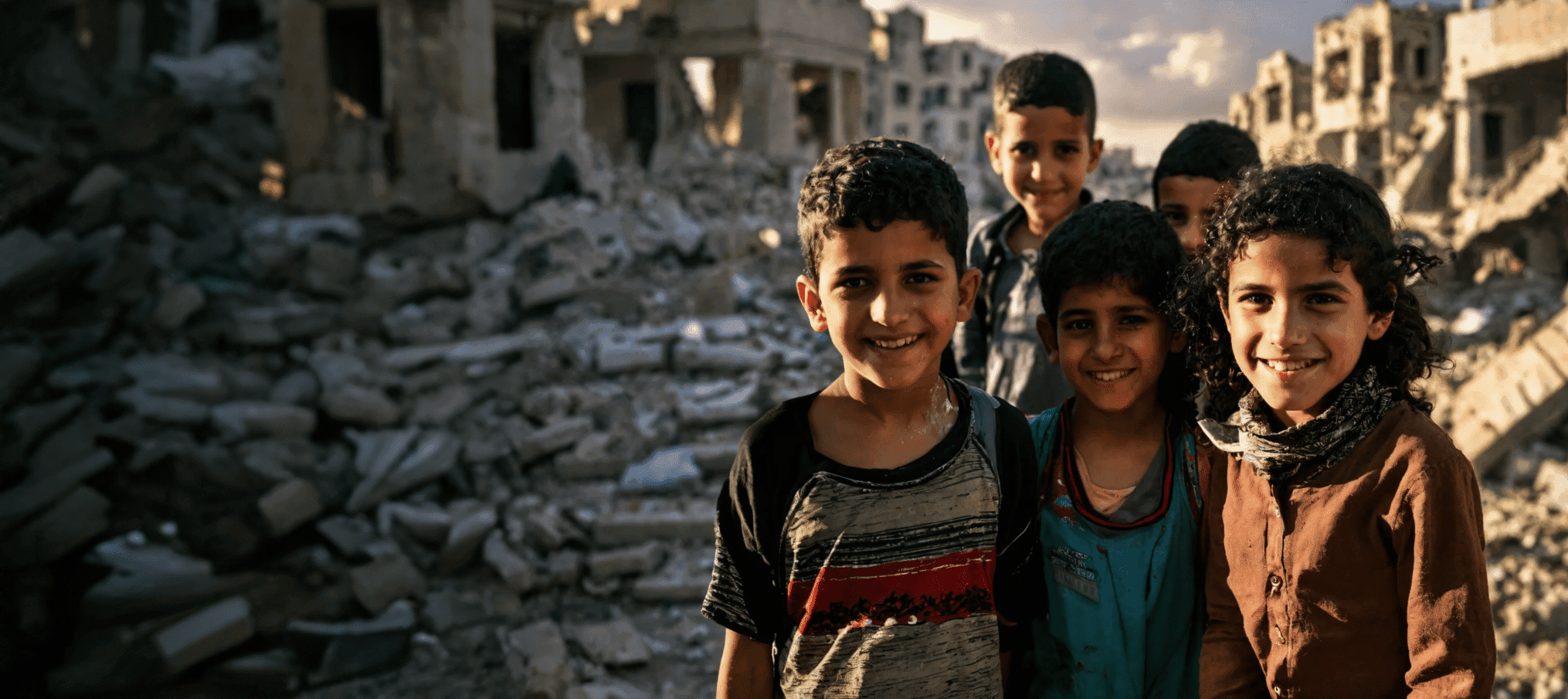Syria, Aleppo, December 12, 2024: The streets teem with life, seemingly restored to normality. A Christmas tree glimmers in the center of the city’s main square. Yet, the road from Damascus to Aleppo is lined with lifeless bodies, lives shattered by a war “won without fighting.”
The testimony of Jean François Thiry
“The journey itself went smoothly: a quick checkpoint at the exit from Damascus, another brief inspection upon entering Aleppo... even the bridge—you remember the bridge bombed over the river? You can cross it now; it slows you down a bit, but it’s passable.” Jean François Thiry, the project manager of Pro Terra Sancta in Aleppo, has just managed to return to the city after being stuck for days in the capital. Over the phone, he describes a Syria “recovering, in a façade of normality carefully emphasized by the new political power.” However, the absence of fighting is merely an illusion. “While traveling to Aleppo, I saw so many lifeless bodies along the road: corpses of men, soldiers, still in their uniforms. When I saw them there, lying by the roadside, the words I could use seemed so hollow, every discussion about what happened seemed empty.”
“I was deeply moved to see all those people there like that because this war is so senseless: they let these people die for nothing, for absolutely nothing.” Jean François is not the only one who has witnessed the destruction and death hidden behind the narrative of a bloodless conquest. “Even Talal, a colleague of mine, told me that on his return to Aleppo from the Christian Valley near Homs, he saw many bodies in burnt cars, a whole bus with all the people still inside.” The Western perception of a bloodless conquest stems from the absence of violent clashes in Damascus and Aleppo. But in Hama, Homs, and the surrounding areas, early December was marked by a bloody battle, with its victims still lying in the streets.
“There were so many cars on the road, so many people heading back to Idlib, cars packed with people, children with rifles slung over their shoulders, and many riding motorcycles.” The motorcycles are an image etched in Jean François’ mind with powerful symbolism. “This will be remembered as the revolution of motorcycles or the war of motorcycles because they arrived in Aleppo on motorcycles, and they traveled down to Damascus the same way. They crossed all of Syria, and no one stopped them.” It’s an image of speed and power, a movement advancing unstoppable. “On those motorcycles, they drove the army into retreat! An army that was practically non-existent, let’s be clear,” his colleague specifies, “but it was still Assad’s and the Russians’ army.”
“When I arrived in Aleppo, I didn’t find it much changed: there are many cars, many people crowding the streets, and there’s even a Christmas tree. But the atmosphere, especially within the Christian communities, is tense: Christians are afraid.” This fear does not stem from any enacted discriminatory measures but from the possibility that they could arise. “Yesterday, I asked a friend of mine if anyone had ever objected to her walking around without a veil. She told me no, not yet, but that if anyone ever dared to, she would immediately leave Syria. It’s a nervous atmosphere, like living in constant anticipation of repression, teetering on the edge of exasperation.”
Jean François describes the life of Christians in Aleppo today as a cautious waiting, an openness tinged with mistrust. “The impression I got is that Christians want to remain open to the developments of this change: even before, so many people here were in dire need of everything, and the opening of new opportunities is, to some extent, surely seen as a chance for social improvement. On the other hand, even now, so many people are in dire need, and nothing guarantees—especially for Christians—that this change will be positive. It’s as if Christians are saying, ‘Let’s see how this goes,’ but it would take just one spark, just one piece of news about a Christian being killed, to trigger a mass exodus from the country. That’s the perception.”
Aleppo is bustling with people, Muslims and Christians, as before; as before, the economic crisis remains, worsened by the collapse of the state. The events of recent days have delivered the final blow to the Syrian pound, and now only dollars and Turkish currency are practically used. “The aid activities,” says Jean François, “must continue, especially now that everything is so uncertain, but the hope is to soon have more clarity.”
Even Aleppo’s Christmas tree, a symbol of a holiday dear to Christians, after being torn down by a group of jihadists, has returned to light up this difficult December in Aleppo. Hopes and fears intertwine in people’s minds, the desire for change and fear of extremism reflecting one another. Meanwhile, in Aleppo’s shops and establishments, the sale of wine has been banned.
























